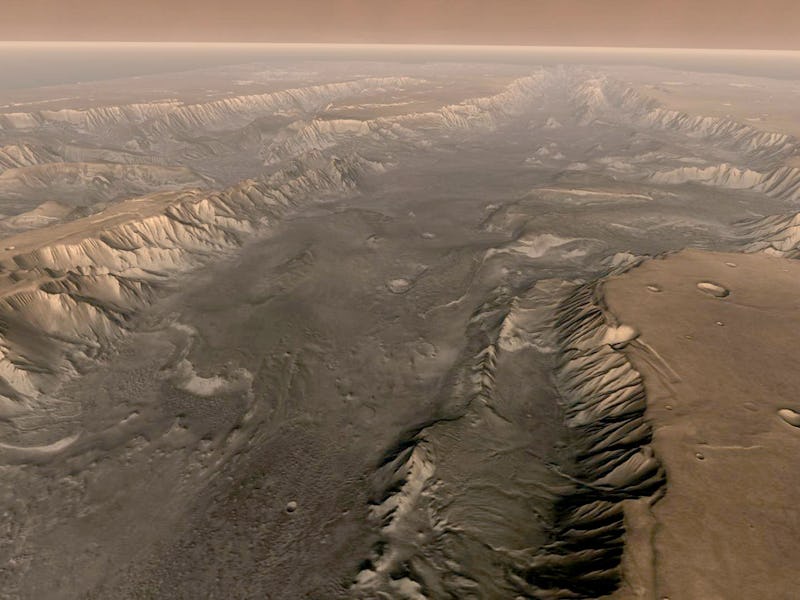SpaceX Will be the "Transcontinental Railway" to Mars, Says Elon Musk
Mars, the coldest tourist destination in the Solar System.

Scratch Big Sur and Macchu Picchu off your must-visit selfie locations, because if Elon Musk has his way, we’ll all be scrambling for tickets to Mars. The futurist business magnate has some impressive goals for his companies Tesla, SpaceX, and the Boring Company, and one of the goals involves making Mars far more accessible to humans that it is now. SpaceX’s project, the Interplanetary Transport System, hopes to achieve the dream of ferrying humans to and from Mars, at just $200,000 per person. That price won’t even get you a garage space in New York City.
Currently, the only Earthling inhabitant on Mars is the Curiosity rover, which landed in 2012. The Red Planet isn’t quite so hospitable to humans as it is; in order to truly colonize the planet, or at least make it a viable tourist destination, a lot of crucial infrastructure must be put in place. The average noontime temperature is far below zero, solar radiation constantly bombards the surface of the planet, and the cell phone reception is just abysmal.
Elon Musk addressed this specific challenge during a Reddit AMA. User foxyjim99 asks, “will you be sending food and water rations for early colonists? If so, enough rations to last how long? What type of autonomous machines to help prepare the landing/colony site will be onboard these early missions? Will they be in use prior to human arrival, or just sitting there waiting for the first colonists? What companies are you working with to provide the technology that SpaceX isn’t focused on?”
Excellent questions. Musk’s reply is short and succinct: “Our goal is [to] get you there and ensure the basic infrastructure for propellant production and survival is in place. A rough analogy is that we are trying to build the equivalent of the transcontinental railway. A vast amount of industry will need to be built on Mars by many other companies and millions of people.” In other words, SpaceX is focused on the transportation infrastructure at their core — other critical industries will need to step up to provide other necessities.
At present, it’s hard to envision other large companies willing to take on the enormous risks inherent in such a project. Basis telecom services like Spectrum can barely handle providing adequate internet service here on Earth — call us cynical, but we don’t have as much faith in outside infrastructure as Musk.